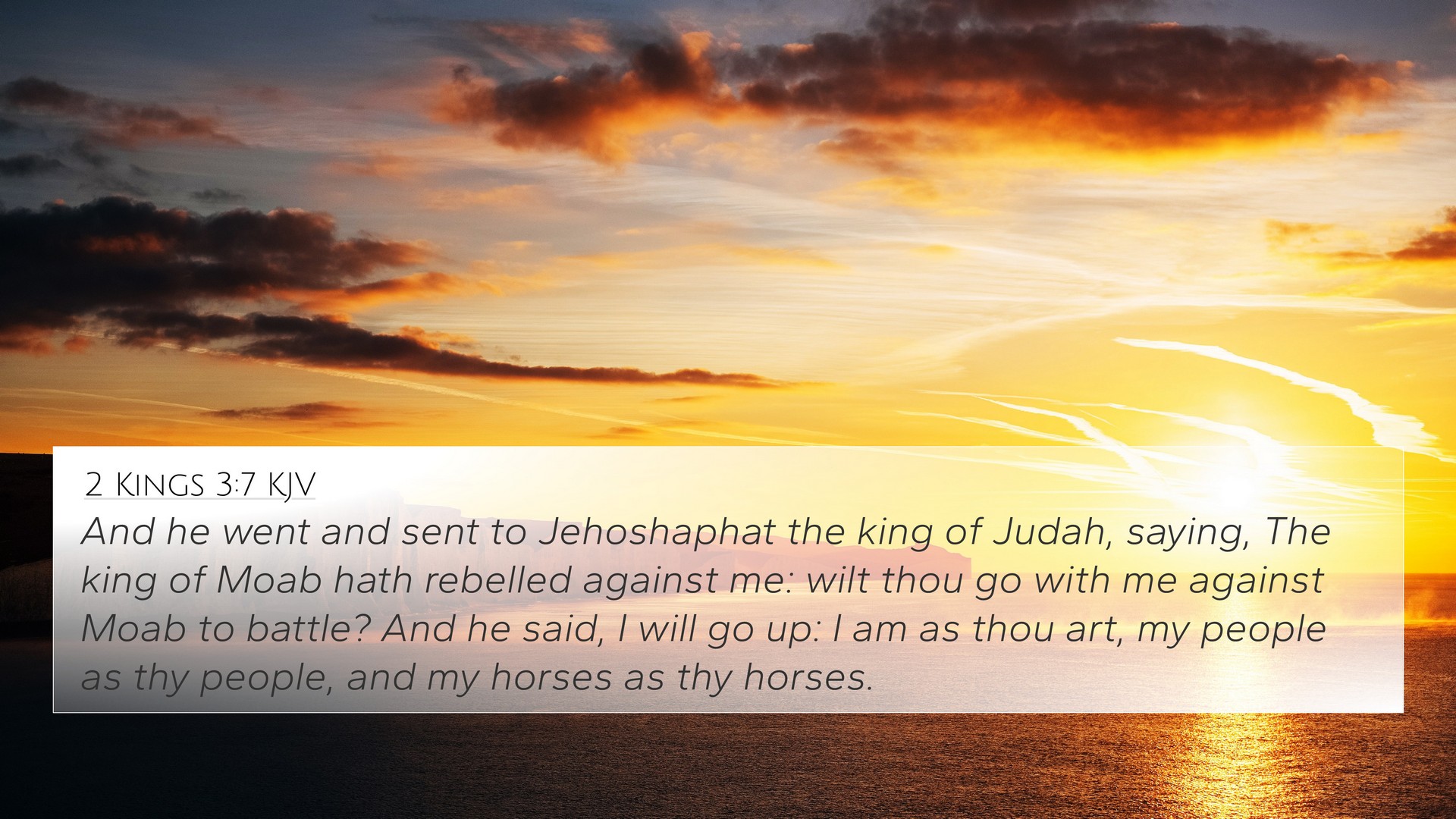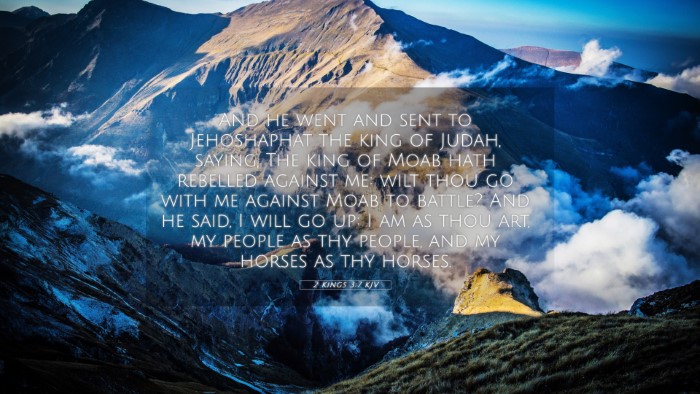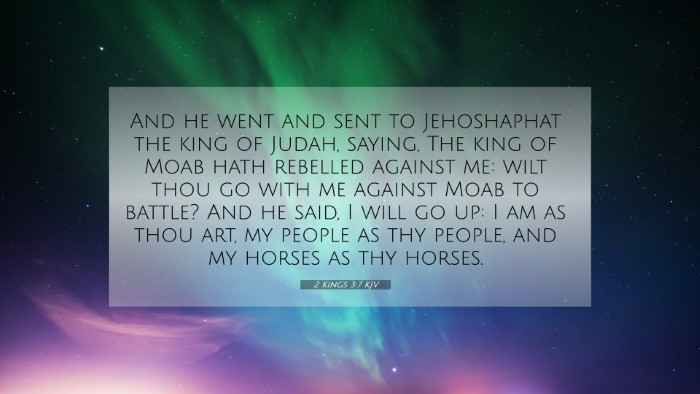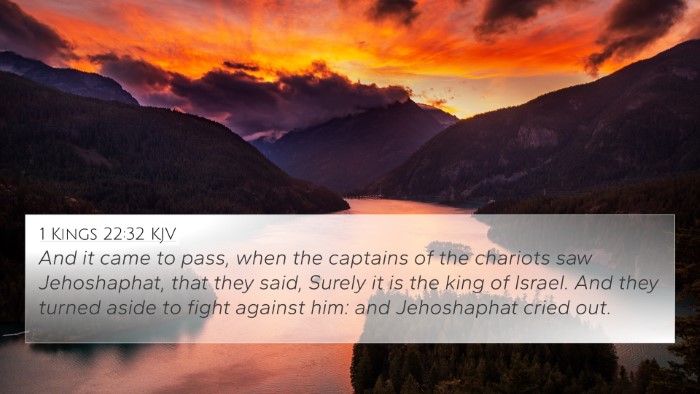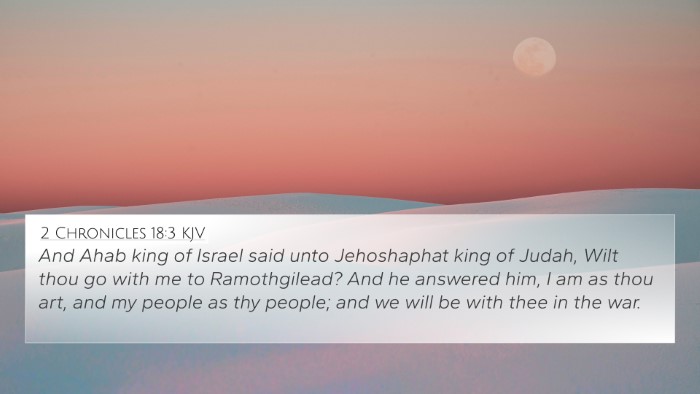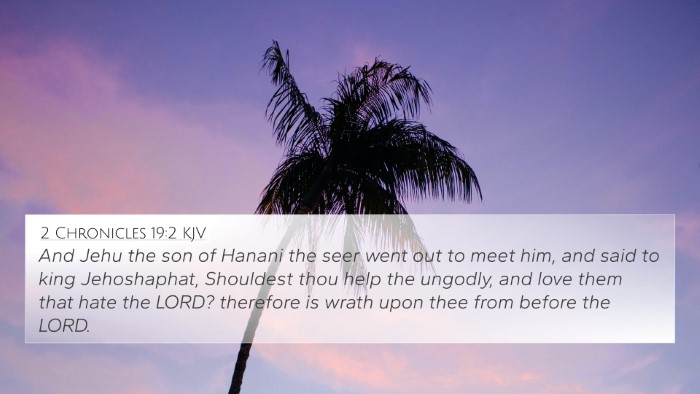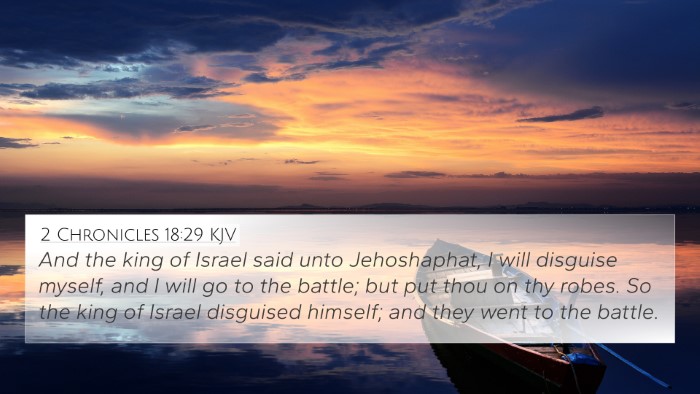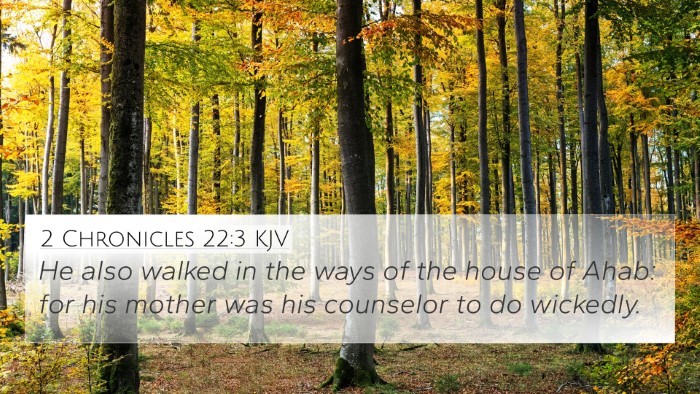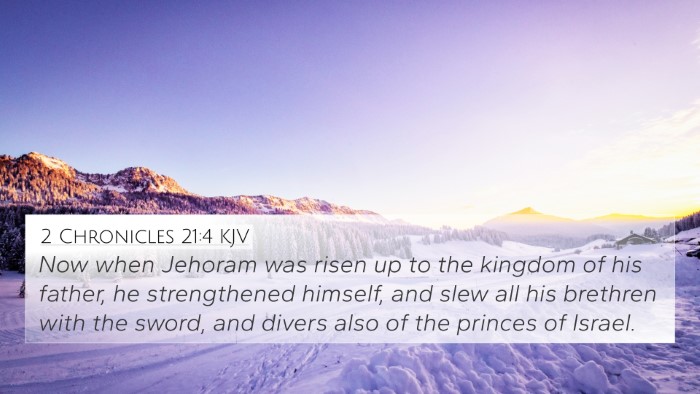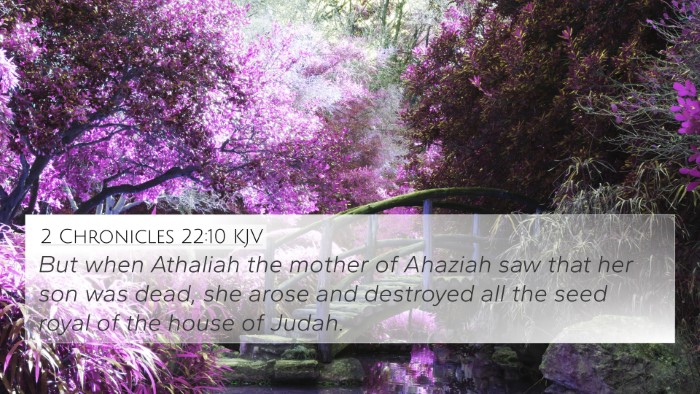Understanding 2 Kings 3:7
2 Kings 3:7 states: "And he went and sent to Jehoshaphat the king of Judah, saying, The king of Moab hath rebelled against me; wilt thou go with me against Moab to battle?" This verse introduces a significant moment in the narrative of the kings of Israel, highlighting the political alliances and conflicts of the time.
Contextual Analysis
The surrounding context of this passage offers insights into the socio-political climate in which these events occur. The kingdom of Israel, led by King Joram, seeks to quell a rebellion from Moab, a nation that historically fluctuated between allegiance and animosity towards Israel. Joram reaches out to Jehoshaphat, the king of Judah, seeking military support.
Key Themes
- Political Alliances: This verse highlights the importance of alliances in the ancient Near East, particularly as Israel and Judah unite against a common foe.
- The Act of Rebellion: The rebellion of Moab reflects broader themes of leadership and loyalty in biblical texts.
- Divine Guidance: The involvement of both kings suggests a reliance on God's guidance during warfare, echoing past events in Israel's history.
Commentary Insights
Several public domain commentaries shed light on this verse, providing a deeper understanding:
- Matthew Henry: Henry emphasizes the lack of faith in seeking alliances instead of looking to God. He points out that the request for help symbolized the kings' attempt to resort to external support rather than relying on divine intervention.
- Albert Barnes: Barnes notes the significance of Jehoshaphat’s participation, reflecting the complexities of Israel's political landscape. His alignment with Joram, despite differing loyalties, illustrates the intricate relationships between the kingdoms.
- Adam Clarke: Clarke elaborates on the nature of Moab’s rebellion and the historical context of prior treaties. He underscores the theme of rebellion and its consequences, as propelled by divine judgment.
Cross-References
To understand 2 Kings 3:7 in a broader biblical context, here are several related verses:
- 2 Kings 1:1: Discusses the background of Moab’s relationship with Israel before the rebellion.
- 1 Kings 22:4: Illustrates earlier alliances formed between Israel and Judah.
- 2 Chronicles 20:35-37: Details the outcomes of Jehoshaphat’s alliances and his trust in God over alliances.
- Isaiah 16:6: Mentions Moab's pride and rebellion themes drawing parallels with the current situation.
- Judges 3:12: Reflects on the cyclical nature of Israel’s conflicts and the external threats presented by Moab.
- Jeremiah 48:1: Proclaims judgment against Moab, framing the historical context of ongoing conflict.
- Luke 14:31: Draws a metaphorical lesson regarding the wisdom of counting costs in forming alliances or engaging in battle.
Conclusion
In conclusion, the verse 2 Kings 3:7 serves as a critical junction in understanding the dynamics of leadership and faith during turbulent times in Israel’s history. The themes of political alliances, the act of rebellion, and reliance on God versus human intervention all resonate through the pages of the Bible, providing rich material for study and reflection. Exploring the connections through scriptural cross-referencing not only enhances one’s understanding of this verse but also deepens the appreciation for the intricate narrative of God’s people.
